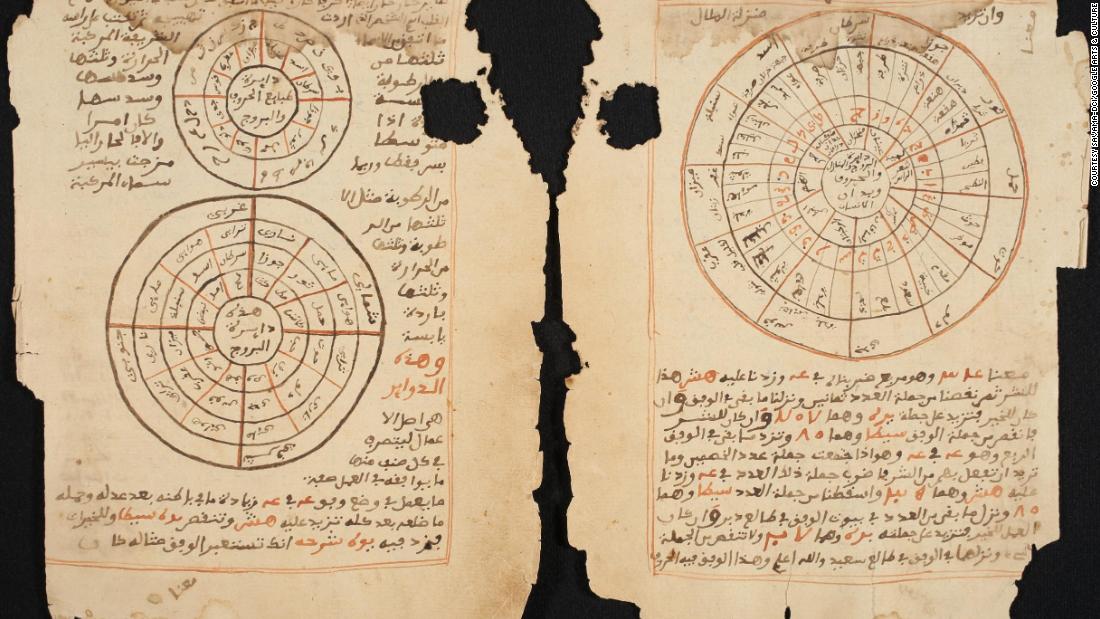Located in the West African nation of Mali, the name Timbuktu has come to embody the idea of a distant place, but this city was once famed as a center of learning, religion and trade. Today it’s still known for its imposing earthen mosques, and the hundreds of thousands of scholarly manuscripts held in public and private collections.
In the 1300s Timbuktu was known for the Djinguereber Mosque and the University of Sankoré, both important centers of learning. In the 1500s, Timbuktu experienced a golden age of wealth and trade, and scholars from all spheres of life and from all over the world converged on the city to exchange knowledge and wisdom.
The scholars produced a vast number of manuscripts, covering topics ranging from philosophy to economics, medicine to agriculture, astronomy to mathematics and religion. As well as revealing how thinkers interpreted the political and social milieu, they also describe everyday life, like how diseases were treated and how trade took place — even covering bedroom advice and black magic.
The manuscripts are “both wonderful and life-changing,” says Mohamed Shahid Mathee, a senior lecturer at the department of religious studies at the University of Johannesburg, South Africa, who has studied the documents for over two decades. “Access to them debunks previous claims of African history as simply oral and religious, but affirms that Africa has a written intellectual tradition.”
The need for digitization
Recent history prompted the initiative. In 2012 and 2013, conflict in Mali imperiled Timbuktu’s manuscripts. At the time, it was thought that hundreds of thousands of documents were destroyed by Islamic fundamentalists, but a coordinated effort took the vast majority of manuscripts out of the firing line and it’s believed that only a few thousand were burned.
Haidara and other librarians smuggled some 350,000 manuscripts more than 600 miles from Timbuktu to Mali’s capital Bamako, where he distributed them to 27 homes for safekeeping.
In time, most of these documents were returned to Timbuktu, and today over 30,000 manuscripts have been photocopied and are safely housed in over 30 libraries in the city. Haidara still protects these precious texts, spending most of his days as an indexer — a job that requires him to read through the manuscripts before summarizing their contents. But determined never to see the country’s national heritage lost forever, in 2014 he contacted Google.
“I turned to Google for digitization because I want to record this legacy we have in West Africa. This legacy that is passed down from scientists, emperors and philosophers is of utmost importance to safeguard,” Haidara explained.
The manuscripts are indicative of Timbuktu’s cosmopolitan past. They are made of a variety of materials, ranging from animal skins to Italian paper and written in beautiful Arabic calligraphy. And due to their age, they’re delicate.
“As a rule, the manuscripts are never taken out of Mali,” says Mathee, and so Haidara and a team of Malian archivists were charged with digitizing them. Google sent equipment including a high-resolution scanner with a mounted camera from Europe, and scanning and indexing the tens of thousands of pages took Haidara’s team eight years to complete.
“This is the first time Google Arts and Culture has ever done anything of this scale with regards to ancient manuscripts and publicly availing them on the Google platform,” Amit Sood, director of Google Arts and Culture, tells CNN.
Haidara hopes that as well as preserving the documents, making them more accessible will keep their history alive.
“When the manuscripts are not read, they have no purpose. We want to seize this opportunity and extract some of these manuscripts to translate and publish them to the public,” he says.
By disseminating the rich cultural history of Timbuktu, there are other possible benefits for the country.
“For a lot of people, Mali might not be on top of your itinerary,” says Sood, “but after visiting these pages, you might change your mind.”

